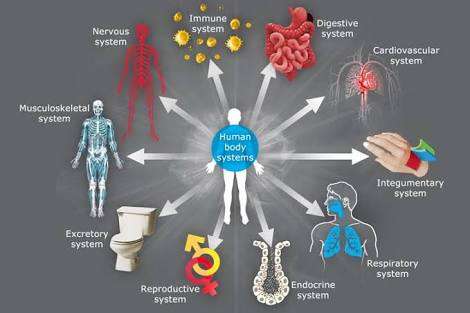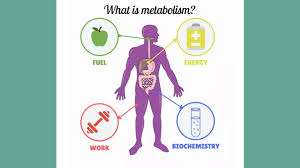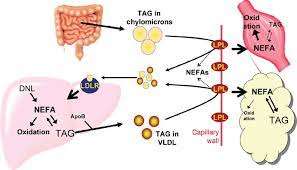Obesity has become a widespread issue, affecting millions globally, and its treatment continues to be a major focus in health research.
One effective strategy in combating obesity is calorie control, a method that not only helps with weight loss but also significantly boosts metabolism.
In this article, leanandfit.info will explore how calorie control influences metabolism, why it works so well in treating obesity, and the scientific basis behind it.
We will also dive into related concepts like metabolic obesity, sarcobesity, and the role of medications like sibutramine and mirabegron in managing obesity.
Finally, we would provide insights into the relationship between lipid metabolism and obesity.
Article Index:
- Understanding Calorie Control
- What is calorie control?
- How it creates a caloric deficit for weight loss.
- The Role of Metabolism in Obesity
- How metabolism impacts weight gain and loss.
- The relationship between metabolism and obesity.
- Calorie Control and Metabolic Obesity
- Definition of metabolic obesity.
- How calorie control helps improve metabolic health.
- The Impact of Calorie Control on Sarcobesity
- Understanding sarcobesity and its challenges.
- Preserving muscle while losing fat through calorie control.
- The Role of Brown Fat in Boosting Metabolism
- Explanation of brown fat and its function.
- The effect of mirabegron on brown fat activation.
- Calorie Control and Lipid Metabolism
- How calorie control influences lipid metabolism and fat storage.
- Importance of improving lipid profiles for overall health.
- Medications Supporting Metabolism in Obesity Treatment
- Role of sibutramine and mirabegron in managing obesity.
- Enhancing metabolic processes with medical support.
- FAQs on Calorie Control for Obesity Treatment
- Conclusion
What is Calorie Control?
Calorie control involves managing the number of calories consumed each day to create a caloric deficit, forcing the body to tap into stored fat for energy.
This process is a cornerstone of weight loss, as it prompts the body to burn fat reserves when energy intake is lower than expenditure. But the benefits of calorie control extend far beyond shedding extra pounds.
One of its most notable effects is the positive impact on metabolism—the process by which the body converts food into energy.
Contrary to popular belief, reducing calories strategically does not necessarily slow metabolism; in fact, when paired with physical activity, it can actually give it a boost.
Strength training and protein-rich diets, for example, help preserve lean muscle mass, which is key for keeping metabolism humming.
Research published in The American Journal of Clinical Nutrition highlights that moderate calorie restriction combined with regular exercise improves metabolic flexibility, enabling the body to switch between burning carbohydrates and fat more efficiently.
A well-regulated metabolism helps the body burn calories even at rest, making it easier to maintain weight loss and achieve long-term health goals.

The Role of Metabolism in Obesity Treatment
Metabolism is the body’s process of converting food into energy for essential functions like breathing, digestion, and physical activity.
A higher metabolic rate means the body burns more calories, even at rest, making it easier to maintain a healthy weight.
However, for individuals struggling with obesity, a sluggish metabolism can be a significant obstacle in their weight loss journey.
This is where calorie control becomes essential.
By reducing calorie intake, the body is forced to tap into its fat reserves for energy, increasing metabolic activity and promoting fat loss.
An example of this is someone who cuts 500 calories per day while incorporating regular physical activity. Bodyweight exercises such as push-ups are an ideal way to burn extra calories without injuring your bones, muscles and tendons.
Their body gradually shifts from relying on dietary carbohydrates to burning fat for fuel, leading to improved fat metabolism.
Studies published in The Journal of Clinical Endocrinology & Metabolism confirm that moderate calorie restriction enhances basal metabolic rate (BMR) by boosting the thermic effect of food (TEF) and activating brown fat, a specialized tissue that burns calories to produce heat.
Brown fat activity is particularly interesting because it transforms stored energy into heat, contributing to weight loss and improving metabolic health.
This adaptation not only supports fat loss but also helps individuals overcome metabolic plateaus during their weight management journey.

Metabolic Obesity and Calorie Control
Metabolic obesity is proof that you can’t judge a book—or a body—by its cover. It is when someone appears to be at a normal weight but is dealing with metabolic mayhem beneath the surface.
Think insulin resistance, high cholesterol, and dangerous fat hiding around internal organs like the liver.
These individuals may not look overweight, but their health risks are right up there with those carrying extra pounds.
This is where calorie control comes in. It’s not just for those visibly battling weight issues; it is equally important for individuals with metabolic obesity, sometimes called “skinny fat.”
Creating a calorie deficit can help these individuals reduce internal fat storage, especially around critical areas like the liver and abdomen, where fat tends to wreak the most havoc.
A study published in Diabetes Care showed that moderate calorie restriction significantly improved insulin sensitivity and reduced liver fat, even in people who didn’t lose much weight on the scale.
Intervening early with dietary adjustments and targeted fat loss is essential to prevent the progression of conditions like type 2 diabetes and heart disease.
Because in the game of health, it is what’s on the inside that truly counts.

The Impact of Calorie Control on Sarcobesity
Sarcobesity is a term used to describe the coexistence of obesity and sarcopenia, the loss of muscle mass.
It is particularly common in older adults who lose muscle strength and tone due to age while also accumulating excess fat.
For people with sarcobesity, calorie control needs to be balanced carefully to ensure that fat is reduced without exacerbating muscle loss.
Calorie control, when combined with resistance training (such as squats) and adequate protein intake, can help combat sarcobesity by promoting fat loss while preserving lean muscle mass.
In this way, metabolism is boosted by maintaining or even increasing muscle mass, which is more metabolically active than fat.
This dual effect makes calorie control an effective strategy in treating both obesity and sarcopenia.

The Role of Brown Fat in Boosting Metabolism
Brown fat, also known as brown adipose tissue, is the body’s hidden weapon for boosting metabolism.
Unlike white fat, which stores energy, brown fat burns energy to generate heat in a process called thermogenesis.
This helps regulate body temperature while burning calories, reducing fat storage, and even preventing cardiac overload in obese individuals by easing the strain on the heart.
Recent research is uncovering exciting possibilities for activating brown fat.
One standout discovery is the potential of mirabegron, a medication traditionally used for treating overactive bladder, to stimulate brown fat activity.
Studies published in Cell Metabolism show that mirabegron can significantly enhance brown fat activity, resulting in increased calorie burning and improved insulin sensitivity.
When combined with calorie control, activating brown fat offers a powerful, two-pronged approach to weight loss—boosting the body’s metabolic rate while lowering calorie intake.
Imagine your body’s metabolism getting a turbo boost, burning extra energy without requiring hours of exercise.
This dual strategy could be a game-changer for managing obesity, helping people shed fat faster while improving metabolic health.

Obesity and Lipid Metabolism
Lipid metabolism refers to how the body processes fats, and it plays a central role in obesity.
People with obesity often exhibit disruptions in lipid metabolism, which can lead to the accumulation of fat in vital organs and increased cholesterol levels.
Obesity and lipid metabolism are tightly connected, as excess caloric intake leads to the storage of unused energy as fat.
Calorie control helps correct these disruptions by reducing fat stores and improving the body’s ability to metabolize lipids. As fat levels decrease, there is a corresponding improvement in lipid profiles, which can help lower the risk of cardiovascular disease.
Studies have shown that even moderate weight loss can have a profound effect on lipid metabolism, reducing triglyceride levels and increasing HDL (good) cholesterol.

Medications Supporting Metabolism and Obesity Treatment
Some medications are used to support metabolic changes during calorie control. One such medication is sibutramine, an appetite suppressant that influences how the body metabolizes fat.
Sibutramine metabolism promotes the reduction of body fat by enhancing feelings of satiety and slightly boosting metabolic rate. However, due to safety concerns, sibutramine has been withdrawn in many countries.
Nonetheless, its role in demonstrating how medications can aid in obesity treatment by influencing metabolism remains notable.
Similarly, mirabegron brown fat stimulation has gained attention as a potential metabolic booster, especially when combined with a calorie-controlled diet.
By activating brown fat, mirabegron enhances the body’s natural calorie-burning capabilities, helping individuals with obesity lose weight more efficiently.
FAQs on Calorie Control for Obesity Treatment
Q-1: How can eating fewer calories make me burn more across the day?
A-1: “Calorie control” isn’t starvation—it is strategic. A modest, sustainable deficit paired with higher-protein meals boosts the thermic effect of food (cost of digestion) and preserves lean mass, so resting burn drops less. Better satiety also prevents the subconscious slowdown in daily movement; when hunger is managed, NEAT (fidgeting, steps, posture shifts) stays higher, lifting total expenditure.
Q-2: Why does protein-forward calorie control protect metabolism better than “just eat less”?
A-2: Protein costs more calories to process and defends muscle during weight loss. Muscle is metabolically active and enables harder training, which in turn elevates post-exercise oxygen use and daylong calorie burn. Practically: anchor each meal with a palm-sized lean protein, add fiber-rich plants, and keep fats purposeful—this trims calories while keeping the metabolic “engine” (muscle + movement) humming.
Q-3: Can meal timing inside a calorie target change how many calories I burn?
A-3: Yes, by syncing with body clocks. Front-loading calories earlier (when insulin sensitivity and diet-induced thermogenesis are higher) and minimizing late-night grazing reduces energy stored per bite and supports better sleep. Better sleep preserves thyroid and sympathetic tone, which helps maintain resting burn and spontaneous activity the next day—same calories, better metabolic handling.
Q-4: How does calorie control reduce the “energy slump” that makes me move less?
A-4: Ultra-processed, low-protein meals spike, then crash energy, nudging you toward sitting. Calorie control that favors minimally processed foods flattens those swings, so you feel steady enough to keep moving. More stable energy means more steps, longer “active minutes,” and higher NEAT—quietly adding hundreds of calories burned per day without formal workouts.
Q-5: Won’t my metabolism adapt downward no matter what—how do I prevent that?
A-5: Some adaptation is normal, but you can blunt it: keep the deficit modest (≈300–500 kcal/day), lift 2–4×/week to protect muscle, hit a daily step target, and reassess calories as you lose weight. If fatigue creeps up, add a higher-calorie day or brief maintenance week and push protein/fiber—this restores training quality and everyday movement, keeping total burn high while progress continues.
Can Calorie Control Boost Metabolism for Effective Obesity Treatment?
In summary, calorie control is an effective and scientifically-backed method for boosting metabolism and treating obesity.
By reducing caloric intake, the body is forced to burn fat stores, enhancing metabolic processes.
This strategy is particularly effective when combined with other interventions such as exercise and medications like mirabegron, which stimulate brown fat and enhance calorie-burning capacity.
For those struggling with conditions like sarcobesity, metabolic obesity, or lipid metabolism disorders, calorie control offers a powerful tool for managing weight and improving overall metabolic health.
By understanding the relationship between calorie control and metabolism, individuals can take proactive steps to treat obesity and related health issues more effectively.
A comprehensive approach that includes both dietary changes and lifestyle modifications is essential for long-term success in weight management.
References: